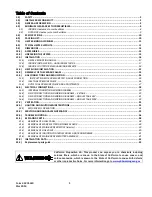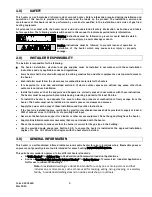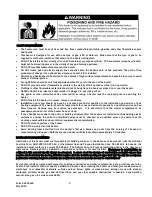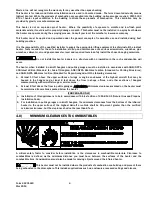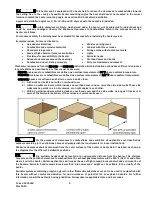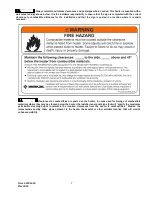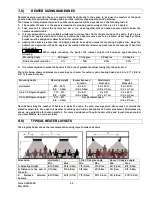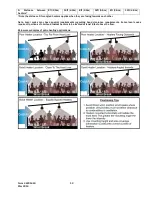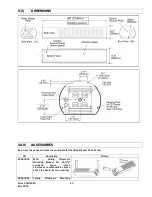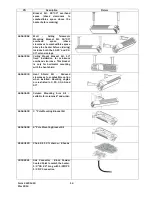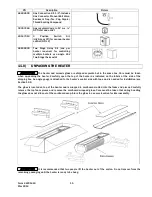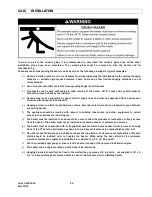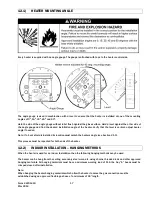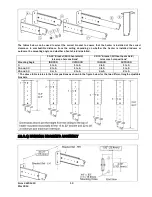
Form 44201460
3
Mar 2019
SAFETY REQUIREMENTS
The heater area must be kept clear and free from combustible materials, gasoline and other flammable vapors
and liquids.
This heater is designed for use with one type of gas (LPG or Natural). Make sure that the type of gas to be
supplied to this heater matches that shown on the heater rating plate.
DO NOT install this heater directly onto an LPG container or propane cylinder. LPG containers (propane cylinders)
must not be stored indoors or in the vicinity of any gas-burning appliance.
DO NOT Store flammable materials near the heater.
DO NOT locate gas and electric supply lines directly above the heaters path of flue products. The path of flue
products will change if an optional low clearance heat shield is installed.
Children and adults should be alerted to the hazards of high surface temperatures and should stay away to avoid
burns or clothing ignition.
Young Children should be carefully supervised when they are in the area of the heater.
DO NOT spray aerosols or flammable materials in the vicinity of this appliance while it is in operation.
Clothing or other flammable materials should not be hung from the heater or placed on or near the heater.
NEVER attempt to service the heater while it is plugged in, operating or hot.
Any guard or other protective device removed for servicing a heater must be replaced prior to operating the
heater.
DO NOT Install the heater in a recess, alcove or enclosure.
Installation and repair should be done by a licensed contractor qualified in the installation and service of gas
heating equipment. The heater should be inspected before use and at least annually by a qualified service person.
More frequent cleaning may be required as necessary. It is imperative that the control compartment, air
passageways and burner of the heater be kept clean.
If any changes are made to the patio or building structure after the heaters are installed such as adding plastic
curtains to enclose the patio the modified design must be checked by a qualified person to ensure that the
clearance combustibles and ventilation requirements are maintained.
DO NOT paint any surface of the heater.
DO NOT throw objects at the heater.
Avoid inhaling fumes emitted from the heater’s first use. Smoke and odor from the burning of oils used in
manufacturing will appear. Both the smoke and odor will dissipate after approximately 30 minutes.
INSTALLATION REQUIREMENTS
Installation of this heater must conform with local building codes or, in the absence of local codes, with the National
Fuel Gas Code, ANSI Z223.1/NFPA 54, or the Natural Gas and Propane Installation Code, CSA B149.1 In Canada, the
installation must conform to current CSA B149.1 (The Natural Gas and Propane Installation Code) in the absence of
local codes. Heaters shall be installed by a licensed contractor or licensed installer. Clearances to combustibles as
outlined in this manual should always be observed. In areas used for storage of combustible materials where they
may be stacked below the heater, NFPA54 requires that the installer must post signs that will “specify the maximum
permissible stacking height to maintain the required clearances from the heater to combustibles.”
Every heater shall be located with respect to building construction and other equipment so as to permit access to the
heater. Each installer shall use quality installation practices when locating the heater and must give consideration to
clearances to combustible materials, vehicles parked below, lights, overhead doors, storage areas with stacked
materials, sprinkler heads, gas and electrical lines, and any other possible obstructions or hazards. Consideration
also must be given to service accessibility.
Summary of Contents for 44625000
Page 37: ...Form 44201460 37 Mar 2019...
Page 45: ......


